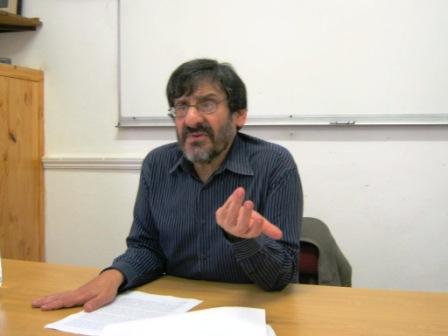
Witch hunts happen when it is easier for people to blame an enemy for problems than to look at the real causes. Which is why the witch hunt against trade unions prevents us dealing with our challenges.
The Democratic Alliance’s (DA’s) Growth Plan is an interesting attempt to develop a pro-business policy in which the government will also address poverty: it reflects a desire to retain its support base while appealing to black voters. At times it retains the balance well, at times less so.
But one aspect of the document loses all balance — its sustained attack on the Congress of South African Trade Unions (Cosatu). While the DA would be expected to criticise the African National Congress’s ally, the document goes further — it is an attack on trade unions and worker rights. While it tries to present this as an attempt to end anticompetitive behaviour by both business and labour, the suggested restraints on business are mild in comparison.
The DA wants to remove restrictions on labour brokers. It also suggests a reasonable attempt to reform labour law — the oft-made suggestion that agreements between unions and employer associations not be extended to parties who did not negotiate them. But it goes on to brand unions and the workers who belong to them not as citizens to be engaged but problems to be solved. The DA wants job zones near airports and ports, which will enjoy "generous" exemptions from labour law. It would weaken laws that protect workers from unfair dismissal and roll back protections that force employers to show they have acted fairly when they fire workers.
Far more is at stake than the bad blood between Cosatu and the DA. The sections on labour law repeat the fashionable view among probusiness commentators — including "labour analysts" who dress up their partisanship as research — that the unions are our chief obstacle to growth and job creation. That is why it has been greeted joyously as a "plan to pulverise Cosatu". Which is a pity, for the claim that unions are our main economic problem lacks evidence.
The refrain that weakening unions would create many more jobs ignores the reality that our formal economy is no longer a mass job-creator. Formal-sector firms have invested heavily in labour-reducing technology: they will not ditch it if the labour laws change. And it is in the formal businesses that unions are concentrated — they are not active in the small businesses where job creation may be more possible.
It remains contradictory to insist both that it is impossible to fire workers in this economy and that we lost 500,000 formal jobs over the past few years. Requiring employers to follow basic principles of fairness before they fire workers does not kill jobs, it makes for fairer workplaces.
Nor does the baying after union blood acknowledge that they may be a force for stability. Research shows what happens here when unionism breaks down in workplaces — it suggests that the only thing worse than negotiating with a strong union is not having a strong union with which to negotiate. When unions strike once in five years, it makes news; the five years when they helped maintain production are ignored.
Nor do we hear much about the productivity agreements unions have negotiated with employers in key industries — and, when textile unions negotiate a compromise with employers relaxing terms for new job entrants, this is described not as a creative compromise, but a union defeat.
There is no evidence that unions are any less open to national compromise than employers — in the mid-1990s, Cosatu signed an agreement with the government allowing negotiated privatisation: the government, not the union federation, tore it up.
An irony of the DA document is that it cites Brazil as an economic success story — there, the trade union-linked Workers’ Party and its unionist president Luiz Inacio Lula da Silva have presided over a period of sustained growth. If a labour movement allied to a governing party can make growth-inducing compromises with businesses in Brazil, why not here?
None of this means unions are always a force for growth or compromise. There is much to criticise in some union positions. But the witch hunt is not saying unions are sometimes wrong: it insists their existence is a problem because only the writ of employers should be allowed to run in the workplace. This also leads us away from the real source of our problems. That our labour relations are often about conflict rather than compromise is a problem to which both business and labour contribute. There is no formula that can prevent millions of South Africans remaining outside the formal workplace even if unions disappear tomorrow, so we need to find creative ways of addressing this challenge. Neither problem can be addressed if we substitute a witch hunt for a diagnosis.
• Friedman is director of the Centre for the Study of Democracy at Rhodes 老虎机游戏_pt老虎机-平台*官网 and the 老虎机游戏_pt老虎机-平台*官网 of Johannesburg. This article was published on Business Day.
